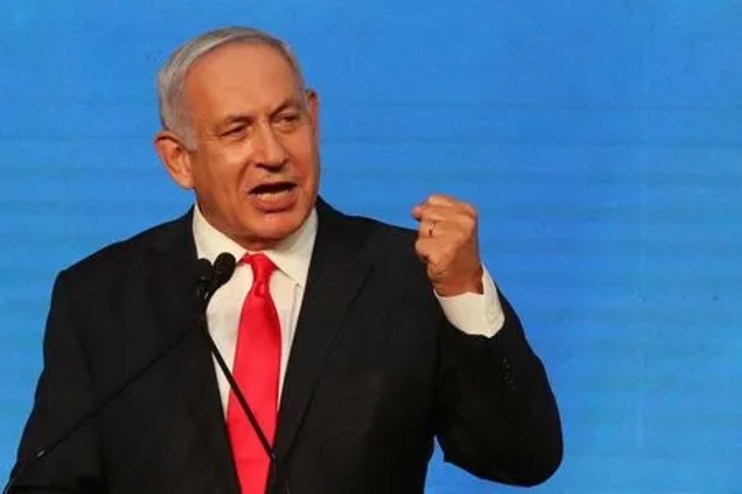Our politicians should learn from Netanyahu’s failure to keep Israel safe

The West can learn lessons from what befell Israel as Netanyahu turned his focus to prolonging his grip on power even if that meant taking decisions that went against Israeli interests, Will Cooling writes
Even while doused in glitter Sir Keir Starmer struggled to take attention away from the appalling scenes in the Middle East as he explained why Britain should vote to make him Prime Minister at the next election.
There was a sombre symmetry as a year after Labour’s last election victory, the beginning of the Second Lebanon War helped bring Tony Blair’s premiership to an early end. That war also saved from political oblivion the man who has defined recent Israeli politics more than any other, Bibi Netanyahu.
Now in his third stint as Prime Minister, Netanyahu has governed Israel for all but one of the past fourteen years. It has been a time of tremendous turmoil for Israel with Netanyahu forced to resort to more extreme contortions to stay in power. His most recent government saw him ally with minor rightist parties and push to reduce the power of the judicial system to check governmental abuses of power. This convulsed Israeli society with mass protests throughout the spring and summer of this year, with many educated liberals resigning from the security and defence services. Whilst those reforms were paused, he also pursued an expanded programme of building settlements on the West Bank.
Such hyperactivity was motivated by Netanyahu’s determination to prolong his political career, a determination only boosted by his ongoing battle against corruption charges. He seemed to welcome the fact that Israeli society was dividing around him, hoping such polarisation would keep him in power. Likewise for a man who had won repeated victories by warning Israelis of the many dangers that their country faced, he seemed complacent about the threat posed from terrorism, confident that his investments in technologies such as the Iron Dome air defence system would be more than able to handle Palestinian rocket attacks, as he sought to neuter them politically by deepening economic ties with Arab nations.
It sadly turned out that such confidence was as misplaced as his broader focus and energies. Early reports suggest that the relevant security posts at the border with Gaza were barely manned by Israeli forces, allowing gunmen from Hamas and Islamic Jihad to overwhelm them and begin their barbaric rampage across Southern Israel. Likewise, warnings from the intelligence services that a threat was coming from Gaza were dismissed by ministers within Netanyahu’s government as politically motivated gambits from a deep state opposed to settlement expansion. This left the bulk of Israeli forces in the West Bank, helpless to intervene as babies were murdered and attendees at a musical festival were raped. It took a demoralised and misdirected army three days to restore Israeli control over its border with Gaza, a national humiliation considering Israel’s military resources. As many as a thousand Israelis may be dead, with over 100 held hostage in Gaza.
That this rightist government is utterly unsuited to govern Israel at a moment of such danger can be seen by Netanyahu’s quick calls for opposition parties to join him in a government of national unity, with a deal likely to be announced imminently. Netanyahu will most likely stay as Prime Minister, but history will surely judge him as the Prime Minister that was looking the other way as the worst attack on his country in its history was being prepared.
But the horrible feeling that I can’t shake is that there is a lesson in this bigger than just criticising one politician. Netanyahu was responding to a political system that gave minor parties tremendous power in parliament and means established parties can rapidly lose seats. He was using all his skills and cunning to prolong his grip on power, even if that meant taking decisions that went against Israeli interests or damaged its society.
But politics isn’t a game. Politicians are the protagonists of politics, but they are not its point. Yes, they must win elections, but winning elections is only purposeful if they use that platform to help and protect people. We all need to avoid simply praising politicians for their tactical feints or presentational whizzes, and focus instead on what matters. Because otherwise, one horrible day, we might find ourselves wondering why we praised a minister’s bigoted speech or shadow spokesman’s cowardly policy as smart politics, when deep down we knew they were storing up problems for the future.
Will Cooling writes about politics and pop culture at It Could Be Said substack
